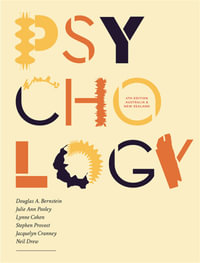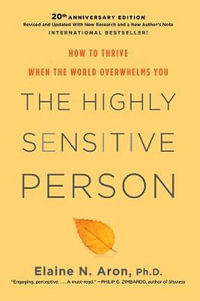This volume is devoted to the fascinating topic of social communication - fascinating because communication is ubiquitous, in that one cannot not communicate. And yet, the art of effective communication can be extremely demanding and elusive, because a tricky trade-off problem has to be solved. For communication to be successful, it must be at once informative - somehow indicating an intended direction of thought or action - as well as subtle - somehow concealing intentions and instrumental goals. Failure to meet the former criterion renders communication uncontrolled and haphazard; failure to meet the latter raises suspicion and reactance.
The chapters in this volume focus on the tools and repertoires evolved by social communication in order to deal with this demanding trade-off. They represent prominent paradigms of current research at the interface of communication and social psychology, presented by leading scholars who have played crucial roles in the development of those paradigms.
The sixteen chapters are grouped into four major sections: communication within and between groups and cultures; strategic communication; social communication, affect, and behaviour regulation; and social communication and adaptive behaviour regulation. Individual chapters are devoted to such intriguing topics as stereotypes and intergroup affairs, language and culture, deception and lie detection, persuasion, discussions in groups, logic of conversation, nonverbal cues, conversational implicatures, the impact of conversation situations and social distance, and the evolution of verbal communication. The volume is framed by an introduction and an epilog.
Social Communication is essential reading for senior undergraduates, graduates, and researchers working in the field of social communication, language and social psychology, and related areas in social science such as communication science, linguistics, and gender studies.
Industry Reviews
"This thoroughly modern collection of essays, written by masters in the field, is a decisive contribution to the social psychology of language and communication. It represents some of the most productive and generative research frontiers which, though necessarily diverse, have been superbly integrated by Fiedler. It is a landmark publication and truly deserves the title Social Communication." --Sik Hung Ng, PhD, FRSNZ, Professor and Chair of Social Psychology, City University of Hong Kong "Why should social psychologists take an interest in communication? The essays in Social Communication offer a range of thoughtful and persuasive answers. These make the book essential reading for anyone interested in either social psychology or communication." --Herbert H. Clark, PhD, Professor of Psychology, Stanford University "With luck, social psychologists will take note of! the solid contributions in Social Communication, thereby renewing their interest in the social psychology of language." -- Dana S. Dunn, PsycCRITIQUES
























